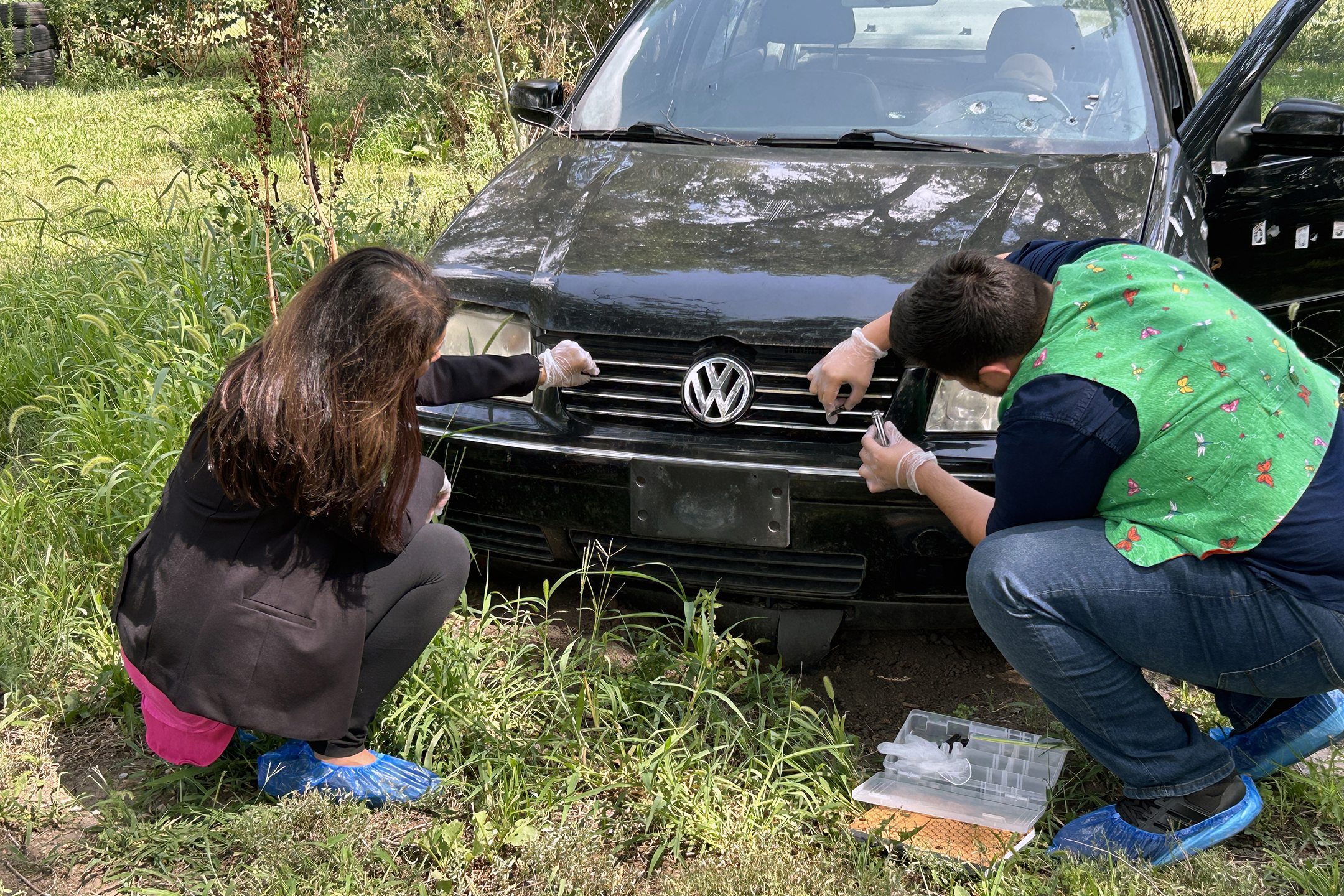
The University of Nebraska–Lincoln’s Department of Entomology invites the public to enroll in a non-credit, online forensic entomology course this fall.
Developed and taught by Erin Bauer, graduate lecturer in entomology, the interactive class uses game-based learning methods to unravel immersive fictional murder mysteries through insect-based evidence. The course is open to all levels of learners.
Forensic entomology is a branch of forensic science that uses insects in legal investigations for crimes, including homicides.
“It’s not like the television show ‘CSI,’” Bauer said. “But insects — like maggots or fly specks — can offer crucial clues about a body’s location and time of death. This class introduces that methodology to the students.”
Titled “The Death of Dannie Bee,” the course allows students to explore investigative methods used in forensic entomology and apply these to fictional cases that represent situations that might be found in the real world. Some of these methods include analyzing maggots found on a dead body, determining postmortem interval (time since death), and collecting insect fragments from a car grille.
The course outline follows an alternate reality game format, creating an interactive, story-driven experience that mimics real investigations. The “plot” is that the body of Dannie Bee and two other victims have been discovered and the police suspect foul play, so the students must use forensic entomology to uncover the time, location and cause of death. The course design draws from Bauer’s own love of murder mystery games and her research in gamification and mixed methods education.
“I’ve always loved games, especially murder mysteries,” Bauer said. “So, this course is both a passion project and a new educational experience. It lets students explore science through storytelling and discovery.
“Forensic entomology plays a bigger role than people realize — not just in homicides, but in civil lawsuits, neglect cases and even food contamination. Understanding how to interpret insect evidence helps students think critically and apply science in meaningful, practical ways.”
The course is part of the research for Bauer’s doctoral degree in entomology, allowing her to gather data on educational outcomes in game-based learning. This is why the course is open to the public, allowing Bauer to reach a wider, more diverse audience.
“This course shows students how insects can tell a story — about where a body’s been, how long it’s been there or even whether evidence has been moved,” she said. “It’s about piecing together a puzzle using biology, and that kind of analytical thinking is valuable far beyond the classroom.”
The course runs Aug. 25 to Dec. 16 and is asynchronous, meaning students can work at their own pace until the final day. Registration is open now on the NU Advance website and costs $20 per student.








